This edition of “American Dream, Italian Way” was made possible thanks to the support byAssociazione Culturale Italiana NY..
Tuesday morning, a cloudy sky in New York. We are at the pier in Weehawken, New Jersey, waiting to take the yacht that was supposed to take the ACF Fiorentina team and its new president close to the Statue of Liberty to admire New York from the river. Notwithstanding the clouds that threatened rain, Rocco Commisso arrives with a sunny smile, with his trusted lawyer at his side and the entire ACF Fiorentina team, coach and escorts behind them. When greeting us, he says: “Thank you for coming, but I don’t know if we’ll be able to get through the entire interview, there are so many things that need to be done…”.

Indeed, during this brief cruise, the new uniforms with the Mediacom sponsorship were presented, and there were many journalists present with video cameras to broadcast in Italy Commisso’s new Fiorentina team, poised and ready to take on the Serie A.
We were certainly interested in the Italian-Calabrian-American business man’s latest deeds, but we hadn’t come to be contented by soundbites about his adventure with Italian soccer between a photo and a video. We had come because we had identified Rocco Commisso as the next protagonist of our column, “American Dream, Italian Way”. We wanted someone who could first and foremost talk about their character, and how it was a determinant factor in becoming successful in America. And so, we explained to Commisso’s efficient PRs that La Voce was not going to attend a mini cruise if their boss was not going to give us a sit-down interview in the time required to do so. In the end, even with a few interruptions, Commisso stayed to speak with us and answer our questions for almost 40 minutes out of an hour and a half cruise. The following interview is the accurate reproduction of that which we were able to get him to recount to us about his life, and most of all, of his character.

One final note before we leave you to the questions and answers: in the interview, you’ll notice that we communicate with each other in an informal manner, even if this was the first time that we were speaking with Commisso. The reason is that Rocco put us at ease right away, and in a very warm manner wanted to speak to us as if he were talking to old friends from the Bronx.
In the way he expresses himself, in the way that he connects with the person he’s facing, the billionaire president–who is the owner of one of the largest telecommunication companies (Mediacom), and of the Cosmos team besides ACF Fiorentina, and with two earned degrees from the prestigious Columbia University, demonstrated all of the authenticity that he had as a child when he arrived in America from Calabria at the start of the1960s. Commisso talks and expresses himself like one of the characters straight out of a Martin Scorsese movie. But we state this to acknowledge the genuineness of the person that we met with: a man without any masks. Again, the force of character of this self-made man is tremendous. Despite the fact that he attended a prestigious Ivy League institution, where the goal is not only to obtain an education but to make connections and gain entrée into a world that will be useful to you in life, he did not renounce his essence and the purity of that character. Instead, Mr. Commisso remains simply ‘Rocco’, the original, the Calabrian kid that comes from the Bronx. With that determined character conquering everything that he has reached for, thanks to the values that his family passed on to him.
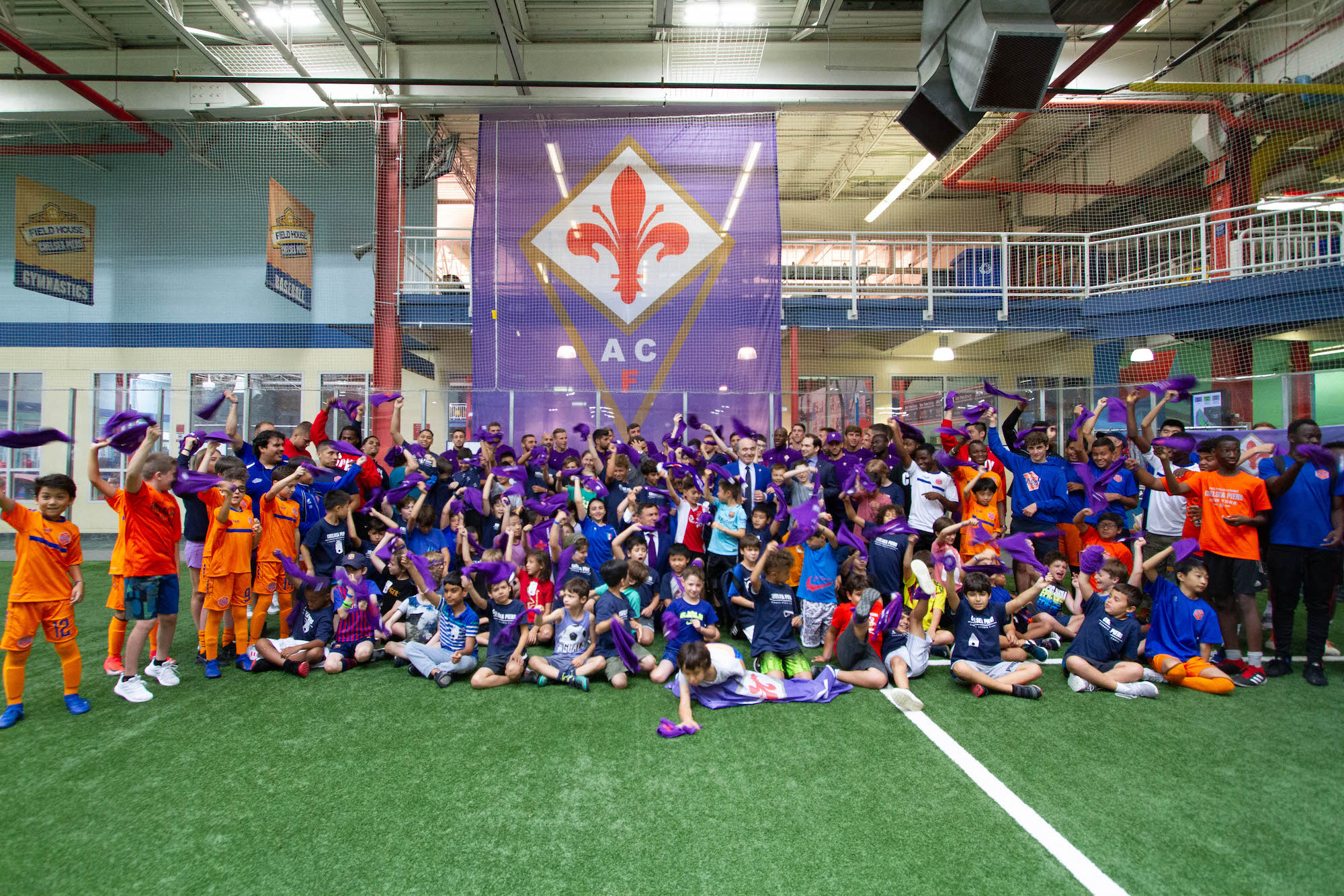
Let’s talk first of all about your passion for soccer. You arrived in the US from Italy as a child — did your passion for soccer develop here or in Calabria?
“Actually, we were already kicking around soccer balls in Calabria; it was the only possible sport for me. I was seven, eight, nine years old, and when it was winter, we played in front of the train station. In summer, we played on the beach.”
So your passion developed in Calabria — what team did you root for? Catanzaro? Reggina? Cosenza?
“No, there was no means for me to go see soccer matches. My father was here in the US. I maybe saw two or three matches at the most in Italy in my entire life. I remember the national team in Udine, and Inter, but I don’t remember who they played against at the San Siro stadium.”
Commisso, who during this interview alternates between speaking in Italian and in English, begins speaking to us with the informal “tu”, and the atmosphere turns warm, and so we also do the same.
Now, your favorite team is obviously the Fiorentina — you bought it— but what was your favorite Italian team that you’ve rooted for since you were a child?
“But you already know the answer — why are you asking me this question? C’mon, you know: it was Juventus! At that time there was Sivori, Charles, Boniperti, Nicolai…and my passion for soccer began from here; they were the best players.”

And you rooted for them from the Bronx?
“No, I was still in Italy at the time, I rooted for the Juventus team when I was a child.”
So, your favorite team was the Juventus, which you rooted for as a child, after which you came to America and began to develop other passions. I’m sure that it wasn’t only soccer: which American sport do you like most?
“Soccer! I played it in college, no? The first year, when I arrived in Pennsylvania, it was the first year in my life that I played and did not work. I tried three sports: baseball, football and then basketball. I liked football the best because of the way we’d ram into each other. Then, I began to like boxing, but a year later, I began working. I didn’t do sports anymore and in high school, there was no soccer. I played a bit of handball, but then I was working 40 hours a week and I didn’t have the time.”
Forty hours a week while you were studying?
“Forty hours a week with my brother; he had a luncheonette, like a diner, that afterwards we turned into a pizzeria.”
And this is all in the Bronx?
“In the Bronx, 238th street, which was called Pizza Time.”

Older or younger brother?
“He was my older brother, he passed away ten years ago. I went to school, he never went to school. My father came here in 1956 and my brother came here in 1958, at fifteen years old.”
Oh, ok. So, they came before you, and then you came with the rest of the family?
“Yes, with my mother and two sisters — we came in 1962. Then my father left Pennsylvania and my brother bought that little place, it’s like a diner, luncheonette, it used to be called a luncheonette, and then we converted that into a pizzeria.”
It must have been one of the first pizzerias in New York…
“No, no, there were pizzerias but it was the first pizzeria where we introduced delivery, and we became the largest pizza delivery place in the whole area. The mistake that was made was that I thought that all of America was the Bronx, and then came Pizza Hut, Dominos, none of them are Italian. They made money with an Italian product, because we were all in the same area, we didn’t want to move. In other words, we weren’t entrepreneurs like the Americans are.”
At 18 years old, however, you attended Columbia University.
“Seventeen.”
At seventeen with a scholarship. Was the scholarship tied to sports?
“The truth is that at Columbia, they accept you with a scholarship if you don’t have money. That’s a typical Ivy league — Harvard, Yale, right? That’s how they do business, right, if you have money you pay, like my son paid, right, if you don’t have money, they help you financially.”

Who pushed you to study? Italian-American families don’t usually push education as a priority for their children.
“My father pushed. The day that I arrived in Pennsylvania, I lost a year of school because even though I had been promoted to middle school, I hadn’t taken the exam to be admitted, precisely because I had to leave for America. So, since I hadn’t taken the exam, I repeated 5th grade, even if I had already completed it. When I arrived here, I was a year behind. Typically, they move you another year behind when you come to this country if you don’t speak English, so I was in sixth grade in Italy, I had lost a year.”
So, you had to repeat the 5th grade?
“No because my father insisted with the principal that I be placed in 7th grade! Then, after a couple of months that I was in school, I moved up to 8th grade! In other words, I completed middle school in the span of months.”
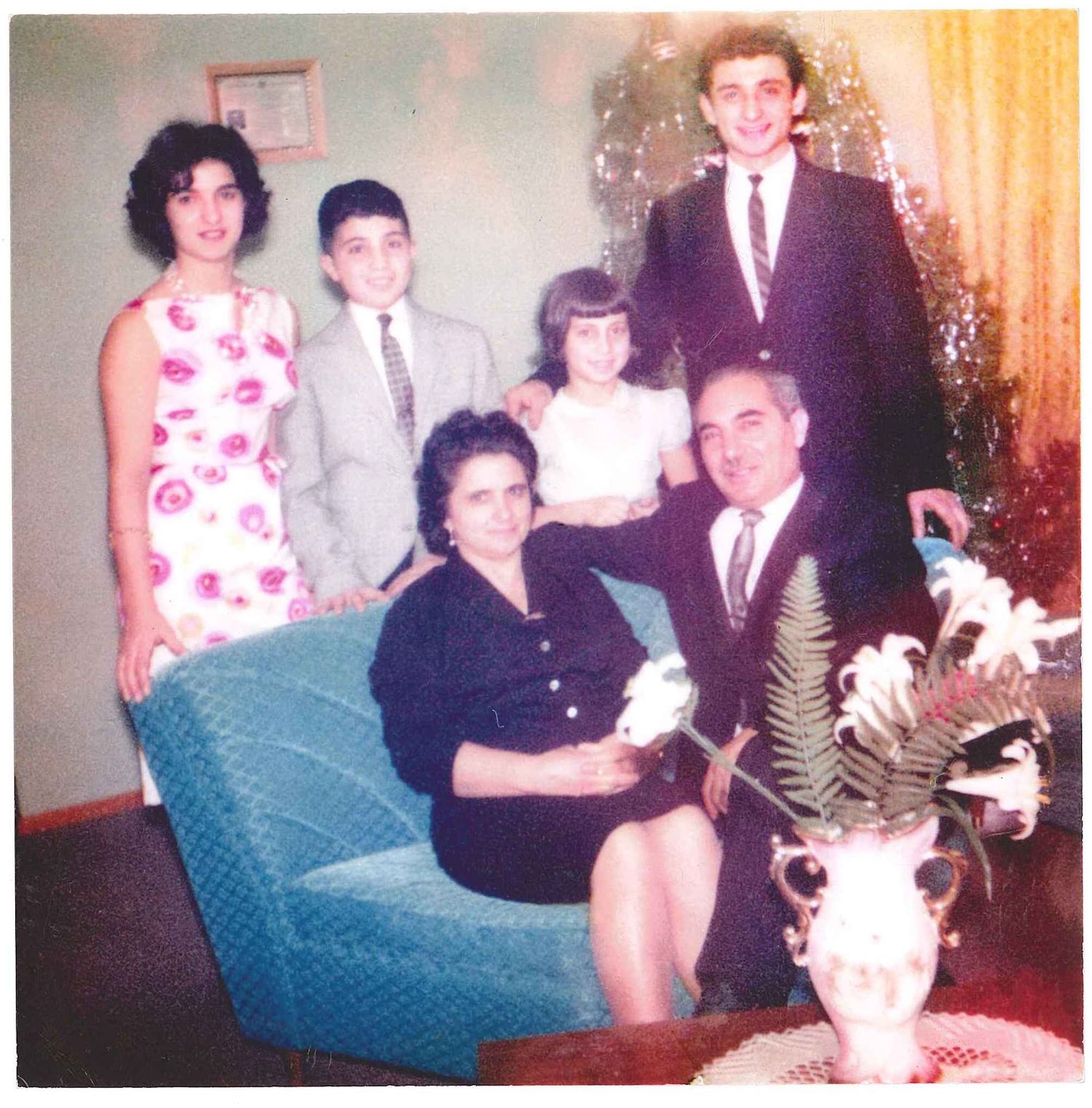
So your father’s role is therefore fundamental, very important in directing you in your studies.
“Not only for that; I did not have to make sacrifices. He instead made many sacrifices, he was a prisoner of war, in Africa he was held prisoner by the British for 5 years…”
And your mother? What role did your mother have?
“My mother was tough, she raised four kids, and she knew how to take care of a family with 100 Lira a month.”
Tough…you mean in her values?
“Very strong values — she passed away last year at 97.”
Both from Calabria?
“Both from the same town, Marina di Gioiosa Ionica.“

When you were a kid and you developed a passion for soccer, living here did you find anyone who played soccer?
“Yeah, we had the other immigrant kids from the neighborhood. What happened in my senior year in high school was that NYU had a very good soccer program; at that time, they had the uptown campus on University Avenue in the Bronx, and there, they had a soccer field. They don’t have it anymore today, but back then, they had a very strong team. My gym teacher understood that I was a hustler. How do you say that it in Italian?”
A fellow journalist approaches our table and tries to help out: “Stronzo! In Italian, it’s stronzo.”

Commisso doesn’t approve: “No, no, not an asshole. I didn’t say ‘asshole’. I said hustler!”
A fighter? A fighter and ambitious – someone who doesn’t give up until they reach their goal.
“I was always like that, do you understand, I didn’t have enough money to go to college, so I started with Columbia, NYU. The gym teacher called them up because they knew that I was good at soccer because we used to have one hour of gym every week.”
What did you play, centerfield?
“In high school with the American kids I was everything, but in college I was always in the middle, stopper (defense) and then I played center forward in my last year and I scored a lot of goals even if the Americans were tall and big. Anyway, when I found out that I got into NYU with a scholarship, I called my gym teacher and I said, call Columbia, tell them that I got accepted to NYU, but that I’d rather attend Columbia. The NYU team was very strong, they had a better coach, so as soon as Columbia heard that NYU was giving me a scholarship, they offered me a full scholarship. The cost today would be 300 thousand dollars.”
Ok, now let’s turn to your Columbia years. What is the best memory you have at Columbia University, the best one, the one that always stays with you?
“We had… first of all, it’s not the best memory but I’ll tell you… in 1968 we had the major riots at Columbia. Columbia University was destroyed by the riots, and it goes down in the spring. I want to give you context, Vietnam. But the best memory is in my undergraduate years; you only play when you’re an undergraduate, soccer, that’s where my friends come from…”
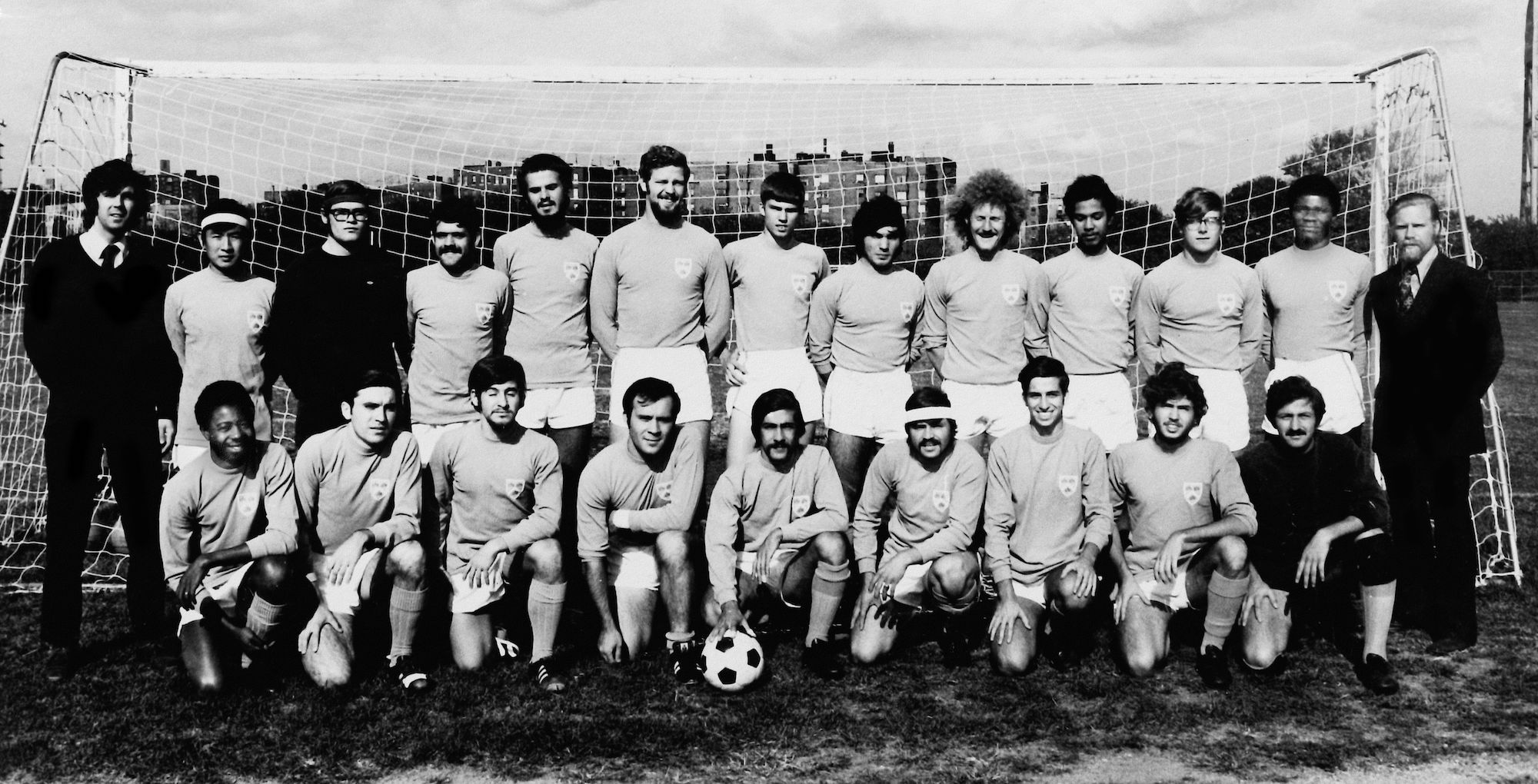
This is late Sixties, right?
“It was in 67’ that I joined Columbia.”
Ok 67’, 68’, 1970 Italy is in the World Cup in Mexico, and has arrived in the finals against Brazil. Did you watch the match in the Bronx or on Columbia’s campus?
“No, because there was no television there. I didn’t watch that World Cup.”
You never watched Rivera scoring the famous last goal during the semifinals against Germany?
“No, I watched it afterwards, I watched it on YouTube, but no, I did not watch it live — we did not have television, the World Cup was not even recognized then, nobody knew about the World Cup. Imagine America was not in the World Cup in those years. America was in the Cup in 1930, in 1950 after the war, and then in 1986 and 1990 to pick up where they left off and increase interest.”
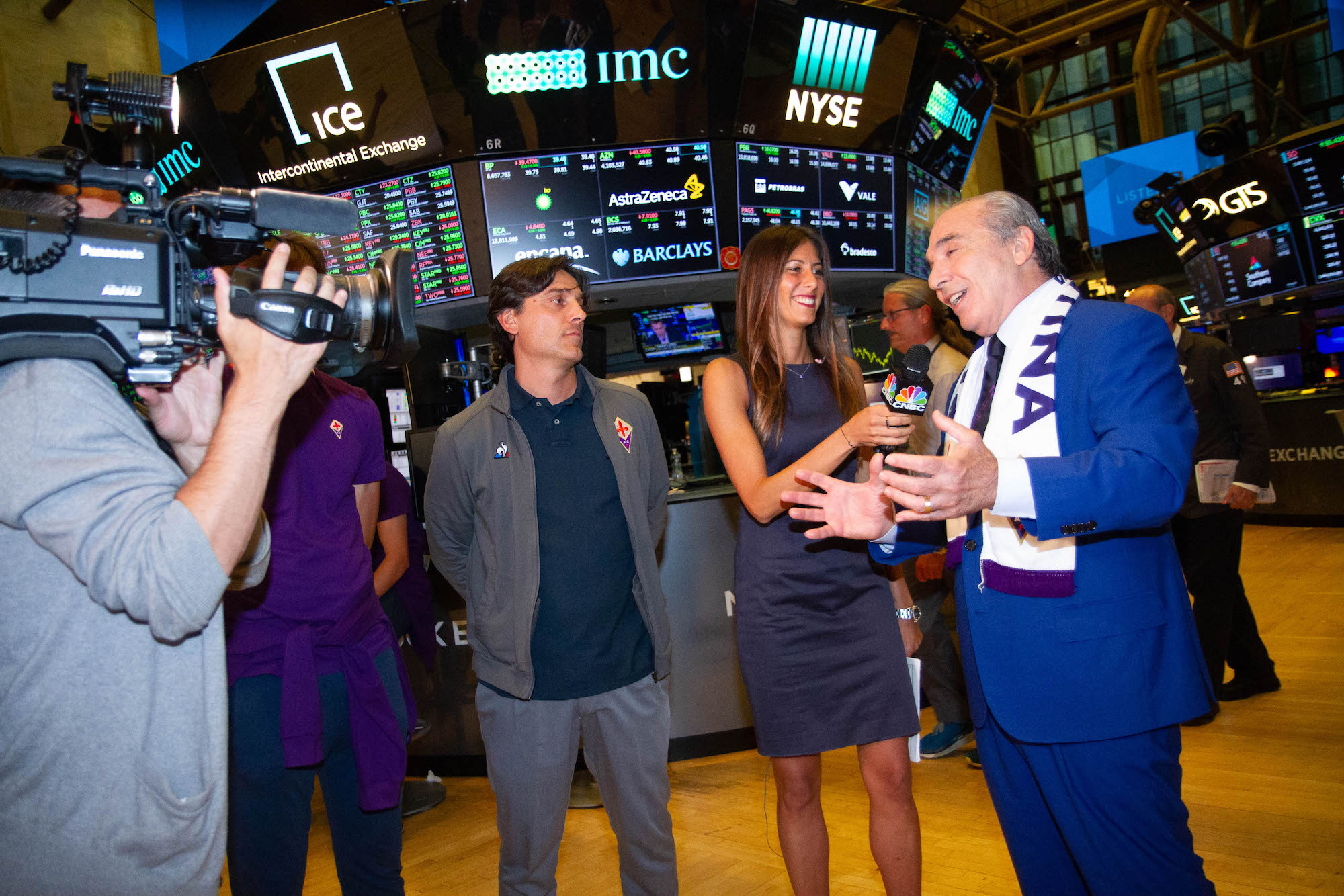
Ok, but you already had a passion for soccer, you already had it, and well before attending Columbia. But you weren’t thinking about the business of soccer at that time. Business is something else, and so, what was the key to your success in business. That is, when is it that you understood that you were the right person to do business?
” I was always, you know, my whole career has been based on, one: working hard and two: being very loyal to the people I work for — until the time they’re not loyal to me. Do you understand? Loyalty. It’s the same even in my own company. I have employees without a contract — nobody has a contract in my company. If you look at the top managers in my company, they have been with me forever, ok, so there is a trust that you take care of me and I take care of you. Which is the same feeling that I want to establish in our Fiorentina team, and I already gave that speech: ‘Take care of me and I’ll take care of you’. Working hard, and then taking what other people view as major risks. When I started the discotheque, I had a job, a beautiful job already on Wall Street. Crazy right? What do you want to do with a discotheque in the Bronx when you have a big job at the bank, Chase Bank, the bank of the Rockefellers. I couldn’t tell the bank that I had a disco because they would fire me!”
Of course.
“I could go through all of my examples — you know I had the disco, you know about Columbia. I also went to business school at Columbia — I was the only student at the university, at Columbia, that worked full-time and went to school full-time, the only one.”
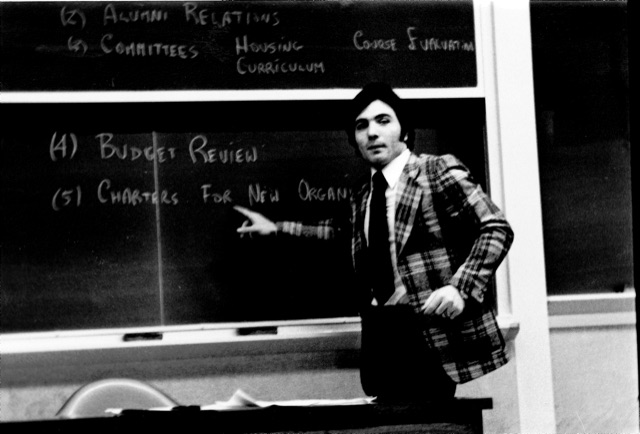
And you kept your grades high?
“I was very good at that because I was the president of the student body at Columbia, elected by the students. Again, I said it before, I lived in the Bronx, worked in the Bronx, because I had the disco, went to school in Manhattan, worked in Brooklyn, always with the subways; the 5 subway, on Flushing Avenue and Marcy and Union Avenue. I went to my boss — crazy, right? — and told him that Columbia was going to pay for my school, give me a job in the night shift, I’ll take it, I’ll volunteer, even though the neighborhood is bad.”
What a story. They could make a movie about you…
“I used to get off at 2 o’clock in the morning on the 5 subway. We’d check all the connections in order to get from Union Avenue, you know, Flushing Avenue in Brooklyn, to get all the way out through Brooklyn, through Manhattan and the Bronx, which was the last stop at 241st Street. At 2 o’clock in the morning I would take my bag and go to my house and I didn’t have to worry about anything. That’s what I said yesterday to the Fiorentina players — I don’t worry about anything, I’m not afraid, I should have been afraid when I was young. So, I did that, and I had a girlfriend by the way, a fidanzata, who lived in Canada…”
And you had time for a girlfriend?
“I used to go there once a month.”
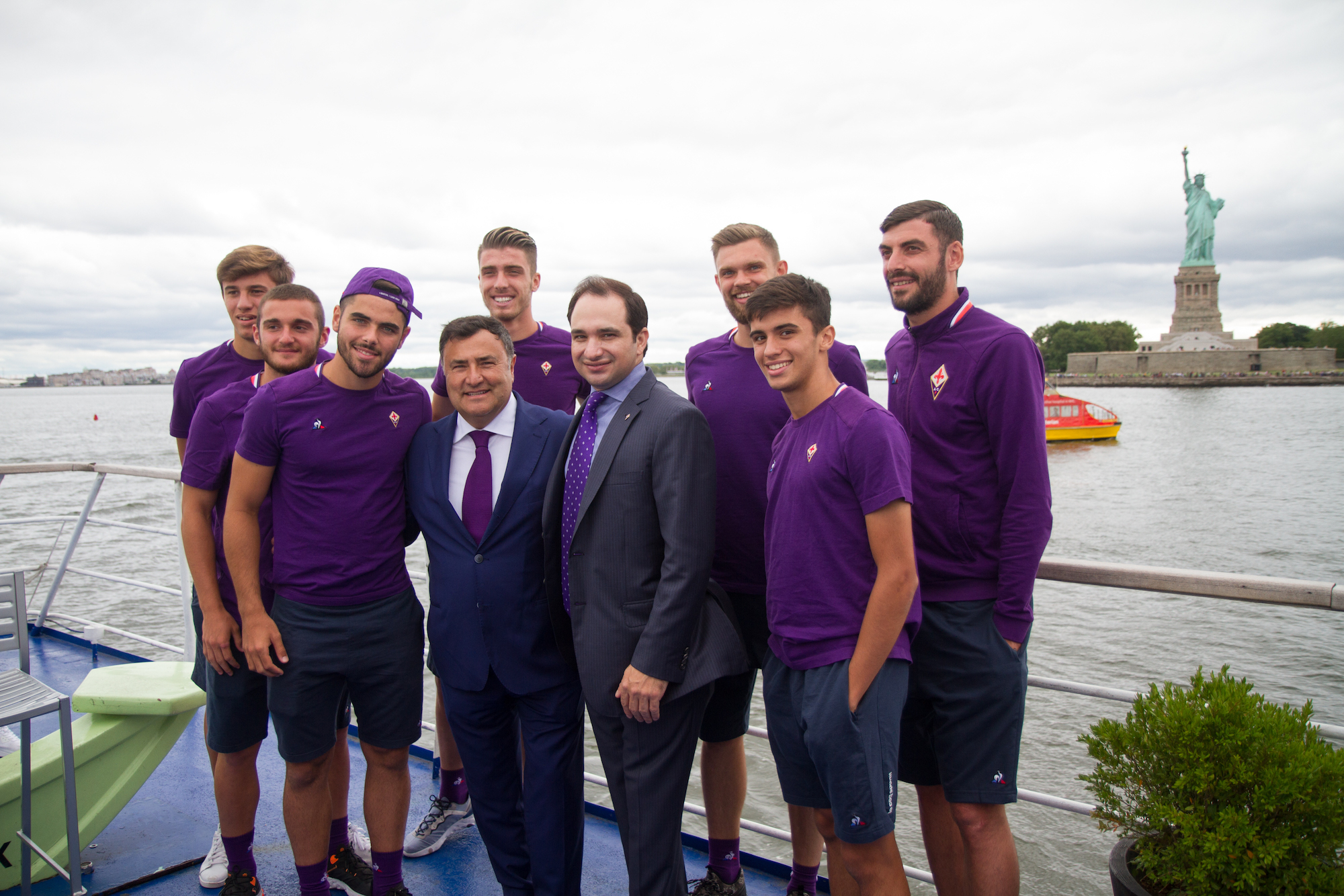
Who was your mentor? Who guided you to make the right decisions in life?
“My parents, they gave me my roots, my values. What a person should be, how you should conduct yourself. My town, my people. You know, we that come from the south often get criticized by northerners, as they call us in Italian [terroni, ndr.], but in the end, we are the ones that are able to do things, no matter the adversity. I think it comes from my father; my father was a man of great principles.”
You have stated that the success that you’ve had in your work is thanks to the values that were passed on to you by your family: helping each other, keeping loved ones close, distancing those whom you don’t trust. Correct?
“Hard work, integrity, transparency, honesty, sincerity with everyone, with all people. If, then, there’s someone that wants to hurt you, at that point you have to do your part. Understand? Because these things also happen, but until then, I don’t believe to have ever hurt anyone in my entire life. I arrived at success without hurting anyone. Now, we have lawsuits filed with the United States Soccer Federation, we have a major proceeding. They wanted to shut our team down [Ndr: Cosmos], which wasn’t right. They took the whole league, Division Two, after I invested all the money in six months and moved it into Division One — that’s when I filed a lawsuit, and it’s still going on and things are going well.”
Some of the American media took your purchase of the Fiorentina to be a form of revenge…
“It’s not a complete product because I tried for many years to buy Milan, Palermo, and so on. [Ndr: we at La Voce were the first ones to get this scoop] So, I don’t want to call it revenge, that’s a tough word.”
I didn’t say that you called it that, but that some of the papers interpreted it that way.
“I’d call it a re-match.”
In sports terms.
“Yes, yes.”
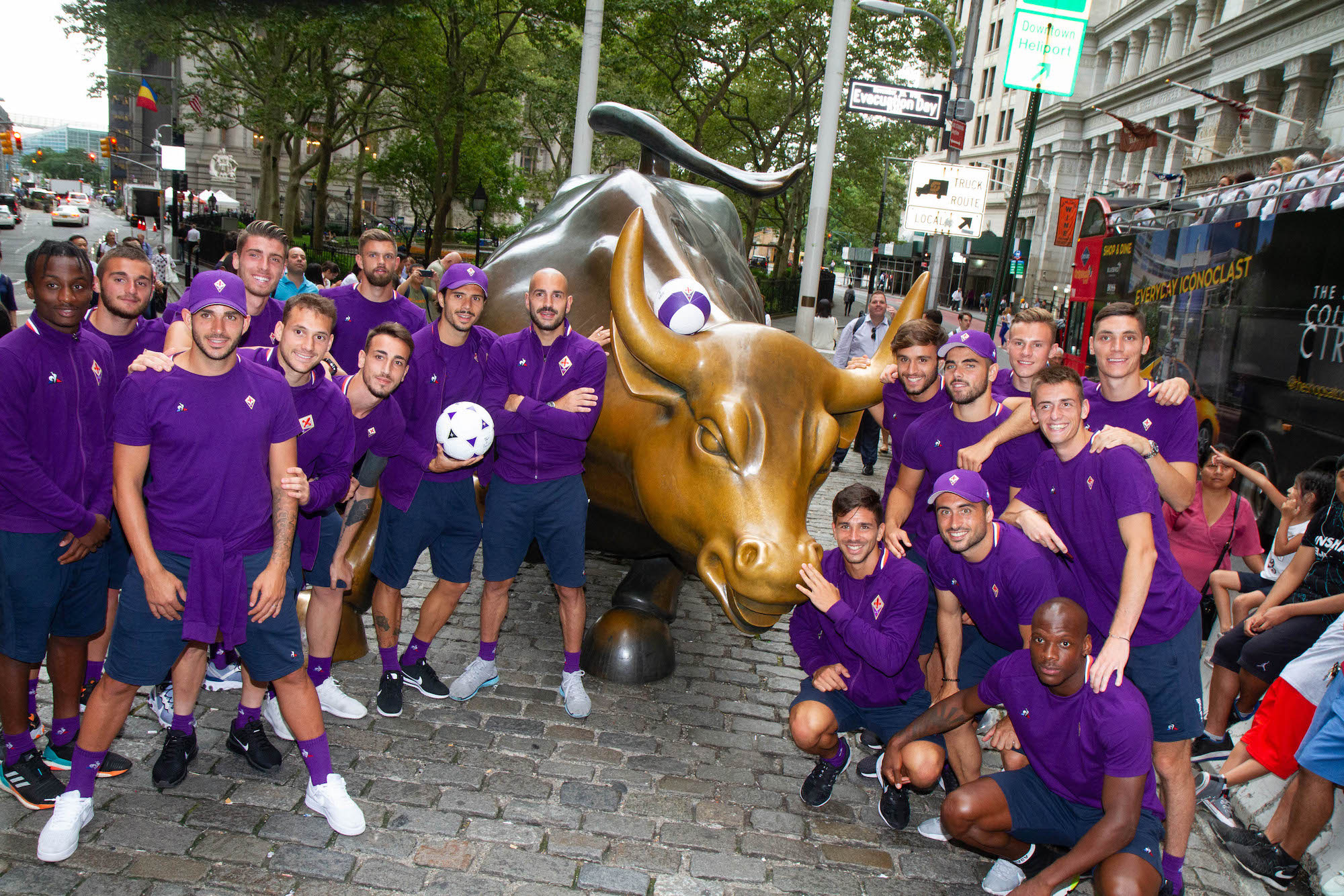
So you never considered buying an MLS team instead?
“They offered me a team 20 years ago when I went to meet with the owner of the Metro Stars. They had their own company, Metro Media, and I, with my company, was involved in fiber optics. I had gone to meet with them about this business, not to discuss soccer. But they said to me, ‘Are you interested in buying the Metro Stars?’ It’s the one from New Jersey, where the Red Bulls then came from. At that time, they asked for less than 10 million dollars.”
But you were not interested.
“I was not interested because I was looking at business. I could not be doing this and still be the owner and CEO of a public company. I had control, but I did not own 100%. When we decided to go private, that means I took all the stock that everybody owned and I bought everything. Now I have to deal with my family, my employees, my customers, but no public investors, I don’t have any investors now.”
Let’s talk about time. Do you expect that the Fiorentina will take up a lot of your time? You have your son here, you have your family that helps you, you have top managers that help you, and friends like Joe Barone — but do you think that your company, Mediacom, is going to suffer as a result of you buying the Fiorentina?
“The enterprise value of my company is 8 billion dollars. The Fiorentina, instead, cost me $150-$170 million. I bought it with a very small part of what I have, but it’s taking up 98% of my time. But I just bought it, it’s new to me, it’s in Italy — the culture is different, believe it or not, the culture is different. I’ve signed more papers, legal papers, in the last month and a half than I have signed in my entire life, but that’s the Italian system.”

How much time do you think you are going to spend in Florence, Italy, now in the next months, 20%, 50%, 80% of your time?
“No, not 80%, I don’t want to give a number because things can change, but my intention is to come and watch the games at the stadium.”
So, whenever Fiorentina plays at home you will be front stage at the stadium?
“Calm down, I didn’t promise that I would be there every night that the Fiorentina will play a match, I would only spend that time with my wife. But I did promise that I would be there as much as I can.”
You bought this team, which is an important team in Serie A. Some may have forgotten, but the Fiorentina in the fifties and sixties was winning scudetti (the Italian championships). It’s a team that has a strong tradition of soccer, but it hasn’t been winning for a long time. When do you expect to win with the Fiorentina? How much time needs to pass? Maybe not this year, maybe not next year, but when do you expect to win?
“We already won one game in Chicago, the first game we played…”

Yes, I understand, but when I asked Antognoni, he was very cautious. Are you also? I don’t believe that Commisso bought the Fiorentina just to keep it dangling in Serie A. You bought it because you want to win the championship and you want to win the European Cup, I understand this. Now, I’d like to know what your plan is — three years, five years, ten years.
Commisso at this moment seems to not want to answer any more of our questions. But then he smiles and continues.
“I don’t have a plan, I’m going to work hard and — I’m being honest — I’m going to work my ass off and then we’ll see what happens.”
Commisso became agitated. He got up with the excuse that someone was calling for him, and it looked like he wouldn’t be returning. But we remained where we were and waited for him, convinced that a hustler can’t be afraid of difficult questions. And in fact, 15 minutes later, he returned and sat down with us again.

We were talking about how you don’t have a plan for the Fiorentina, but I believe that you do have a plan!
“When you talk about a plan, the general plan, you first have to get to know your team. Begin to fix up the infrastructure, give it some time, consider the sports center, but that takes time — you cannot do that in one day. And then we’ll take a step back and see what we have accomplished and incorporated for the next year. I’m not going to make any more promises.”
A five-year plan before winning?
“No, I don’t even have that — I don’t even know if I’m going to be alive in five years.”
Tocchiamo ferro…
“Knock on wood…”
This investment in the Fiorentina, in Italian soccer, is first and foremost for passion, or is there also an economic interest to do business?
“Well, I told you, I don’t have to go to Italy to do business, I have enough money. I don’t need to do it, at my age people retire. I only have one house, I’ve bought houses for other people but not for me, now I could have anything I want to have, I could go to Florida…”
What did your wife say to you when you said you were going to buy the Fiorentina?
“Well, my wife said to me, ‘If you have to do something, make sure you buy in a place that I like’, and Florence was perfect! She now walks around — and now I’m going to tell you about the beautiful Florentine ring that I bought her on the Ponte Vecchio 30 years ago that she lost. The first thing I did for her when we went to Florence was to tell her that I wanted to buy her a present. And she went to buy the ring that she had lost.”

Where is your wife from?
“She’s from a town near mine.”
Did you meet here?
“She is from Siderno and I’m from Marina di Gioiosa Ionica, which are one right after the other.”
The Fiorentina is passion therefore, and not business.
“No, but listen, it’s not business, but up to a certain point, right? You don’t go and throw money away, you spend money to make investments, increase the asset value. What I have said is that the Serie A, not just Fiorentina, is way behind compared to the Premier League, way behind. They’ve got three times our wealth, and with our revenue you can’t buy certain types of players, without certain players you cannot win, if you cannot win…it’s a vicious cycle, you can’t get to the Champions League, but in order to get to the Champions League you cannot have losses, in order to not have losses you have to generate revenue…. Our revenue is about $100 million, $95 million, Juventus over $400 I believe, they still have enough money, wealth disposal, to buy everything — that’s what is ruining Italian soccer, so you need to fix the infrastructure of Serie A.”
But can’t your business, Mediacom, help with the TV rights? There is so much money made, especially for international rights. Isn’t that a business that you’re knowledgeable about?
“I don’t make money with that, you have to understand my business — I don’t own ESPN, I don’t make business with the TV rights. I buy programs from ESPN, NBC, CBS. They sell it to us and we deliver it to your home, so do you have cable TV in your house? We are just Spectrum in New York that brings television programs, telephone, commercials services, enterprise services, advertisements. We do exactly the same thing, just that I don’t do it here in New York, I do it in 22 states, 1,500 communities where we operate — it’s exactly the same.”

But you understand what I am saying – the money to be made in sports is in TV rights; you certainly understand the business…
“What I know is that, one of the first things I did — and we already had a meeting about this — we have to open an office here in New York, it must be New York, no other place; it’s the center of media in the US. It’s not Hollywood, this is where all the advertising, all television, all telecom — all the big companies are operating here, and everything moves through New York, so we need to be here also, just like the League, the Bundesliga, the Premier League. We have to have a greater presence in the New York area, and not just for the Fiorentina; I’m speaking for all of Italian Serie A soccer.”
With whom do you get along in Italian Serie A. I’m talking about managers, presidents? Did you meet the presidents of other teams already?
“You know, the guy from China, Mr. Lee, was in China Then the guy from Palermo I think was in jail — how am I supposed to meet these people? No, I haven’t met anyone. When I was in Milan to close the deal, it was done in record time.”
In fact, you had a fantastic lawyer! [Ndr: Salvo Arena, from Catania, and a Harvard graduate.]
“Very good lawyer. They are so good these lawyers. On both sides we had over 50 people each just to get the job done. Here in the US, you would’ve needed just two! But that is the Italian way, and I don’t want to complain — we got very lucky with the right people, and with the bank, JP Morgan.”
However, Commisso is not the first Italian-American to buy Italian soccer teams. They arrived first to Rome, Bologna, Venezia. Why do you think all of a sudden these Italian- Americans are diving into Italian championships?
“First of all, the Italians were saying that they couldn’t take it anymore, couldn’t take the losses. You know, a lot of teams went bankrupt: Palermo, Bari, Reggina, Catania, Parma. This happens when you don’t invest; you go bankrupt. You take risks and you reap the rewards based on how well you manage your business and what kind of investments you make, and many Italian teams lacked this. So, you’re right, the Americans arrived because they could bring a new way of doing business with soccer. I was almost involved in Roma with Pallotta in 2010, but then I decided not to get involved. Anyway, American investors, but most of all the Russians and Saudi Arabians, pointed towards England…”
Do you believe that the arrival of Italian-American investors in Italian soccer is something positive?
“I am the only one amongst them that was born in Italy.”

So, do you feel more Italian, American or Calabrese?
“I know I won’t upset anyone by saying that I feel to be all three, and all at the same time. I am all of the above, all of the above.”
Are you planning one day to go into politics? Would you be a good politician?
“The last time I was in politics was when I was elected president of the student body at Columbia University. I promised myself then that I was never going to get into politics again. That was in 1974, 46 years ago.”
Thank you for this interview, and we wish you all the best with your adventure with the Fiorentina. We also feel that you have revealed yourself for who you really are to the Fiorentina fans and to all Italians, who perhaps will appreciate the way that you are.
“We’ll see. We’ll see.”
Ilaria Maroni e Aligi Ciancio collaborated on the making of this interview.
Translated by Emmelina De Feo.











